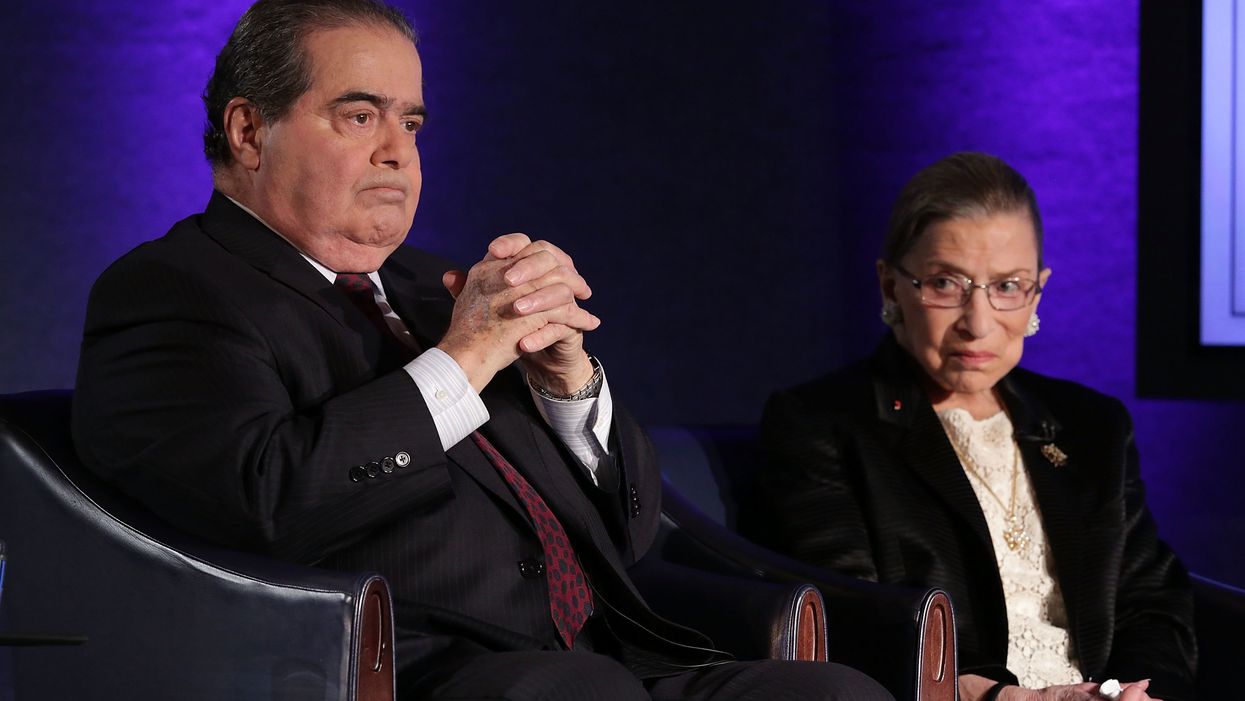Roth is executive director of Fix the Court, a nonpartisan organization that advocates for greater transparency and accountability in the federal judiciary.
Two Supreme Court justices have been hospitalized in the past month for serious health issues. Either could have died, reshaping the court — and the law — for decades. These close calls have increased interest in a question that scholars have been debating since our nation's founding: Should justices serve on the high court for life?
The simple answer is that they shouldn't. And there's a straightforward and widely popular fix that would safeguard judicial independence while preventing superannuation: establishing 18-year term limits for future justices.
Chief Justice John Roberts is only 65, but given his history of seizures, the June 21 fall that landed him in the hospital for a night was of great concern for those who've praised his efforts to keep the court above the political fray during the Trump presidency. Justice Ruth Bader Ginsburg, who's 87, spent a night in Johns Hopkins Hospital in Baltimore last week for a possible infection and subsequently announced she's being treated for a recurrence of cancer, reigniting liberals' fears over a possible vacancy during the peak of a presidential campaign.
Ginsburg's health has caused anxiety ever since Republicans took control of the Senate after the 2014 election, when she was a mere 81 and had already served on the high court for 21 years. That should have been enough time to make her mark on the law, right?
In the past, justices would leave the court for all sorts of reasons after tenures of 15 to 20 years — sometimes even less. Then they'd run for office, take a different government appointment, return to private practice or simply enjoy their sunset years. Nowadays, justices hold on to their power for as long as they can, say 30 or 35 years — and then continue holding on to it until a president with whom they tend to agree sits in the Oval Office.
There's no "Ginsburg seat" or "Antonin Scalia seat" mentioned in the founding document, but it sure feels that way.
The fate of our nation's laws should rest in the hands of individuals who hold their positions based on fairness and regularity, not on actuarial tables and support for the current president.
That's why I, and many others who are much smarter, advocate limiting future justices to 18 years of active service. After that, they would become "senior justices," maintaining the same office and compensation as Article III of the Constitution commands, but not hearing cases unless called upon. Under this proposal, senior justices could also choose to serve on a lower court by designation, something that justices who have retired from the court regularly do.
The elegance of the 18-year plan is that it allows each president to nominate two of the nine justices per four-year term, with no exceptions. In the case of an unexpected vacancy — because of death or medical emergency, say — a senior justice would fill in until the expiration of the term of the departed justice. For example, when Scalia died four years ago, the court would not have been reduced to eight justices; rather, the most recently retired justice, John Paul Stevens, would have taken his place until the next justice was confirmed.
Term limits for the Supreme Court are widely popular, with polling this spring showing 77 percent of Americans favoring the reform. It's an idea that has received support from intellectuals across the political spectrum and was recently endorsed by the American Academy for Arts and Sciences, a society founded a decade before the Constitution was ratified.
Limiting justices' terms would not magically end the hyperpartisanship in Washington today. But it would greatly reduce the chance and gamesmanship that currently characterize the process of confirming justices. Not happy with a recently confirmed justice? No problem. The next opportunity to shape the court is coming in 24 months.
Such regularity would reduce the temperature of today's Senate confirmation process, promote fair-mindedness and increase the chances the future justices are seasoned jurists in their 50s or 60s — and not firebrands in their 40s replacing jurists in their 90s, which is what the current system encourages.
"There is much to be said for changing life tenure to a term of years, without possibility of reappointment," one of President Rondald Reagan's lawyers wrote in 1983. Term limits, he added "would ensure that federal judges would not lose all touch with reality through decades of ivory tower existence. It would also provide a more regular and greater degree of turnover among the judges. Both developments would, in my view, be healthy ones."
That lawyer was John Roberts. Congress should heed that advice and pass a law. Though the Constitution implies a justice serves for life, it doesn't say on which court she shall serve out her days.
Serve 18 years on the Supreme Court, then rotate to a lower court or retire outright, and return to the high court if needed. That way fairness, not a cabal of the infirm, will reign supreme.



















Trump & Hegseth gave Mark Kelly a huge 2028 gift